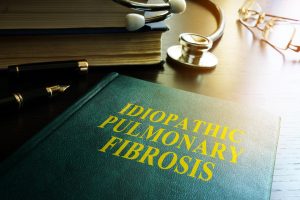New research shows that those with higher levels of omega-3 fatty acids have a lower overall risk for heart disease
Key Points
- Pulmonary fibrosis is a relentless, potentially fatal disease where lung tissue scars and hardens over time
- A new study found that people with higher levels of omega-3s in their blood had lungs that were better able to exchange carbon dioxide and oxygen — a process necessary to life; they also were better able to survive without needing a lung transplant
- This is not the first time omega-3s have been linked to better health: Other studies have shown that the fatty acids can improve outcomes for folks battling heart disease, blood clots and even some cancers
 WEDNESDAY, Jan. 3, 2024 (HealthDay News) — A diet laden with omega-3 fatty acids found in nuts and oily fish might help slow the progression of pulmonary fibrosis, researchers report.
WEDNESDAY, Jan. 3, 2024 (HealthDay News) — A diet laden with omega-3 fatty acids found in nuts and oily fish might help slow the progression of pulmonary fibrosis, researchers report.
Pulmonary fibrosis is a relentless, potentially fatal disease where lung tissue scars and hardens over time. Often tied to smoking, the illness impairs lung function so that patients become short of breath, weak and disabled.
The new study was led by Dr. John Kim, a pulmonary and critical care expert at the University of Virginia School of Medicine and UVA Health, in Charlottesville.
His team tracked the health of 300 patients with interstitial lung disease — the class of respiratory ailments that includes pulmonary fibrosis. Most had “idiopathic” pulmonary fibrosis (meaning the exact cause of the illness is unknown) and most were men (males are more prone to the disease).
Blood tests were taken to gauge each patient’s dietary intake of omega-3 fatty acids.
The team found that “higher levels of omega-3 fatty acids were predictive of better clinical outcomes in pulmonary fibrosis,” Kim said in a university news release.
Specifically, people with higher levels of the nutrient had lungs that were better able to exchange carbon dioxide and oxygen — a process necessary to life. They also were better able to survive without needing a lung transplant, the study found.
“These findings were consistent whether [or not] you had a history of cardiovascular disease, which suggests this may be specific to pulmonary fibrosis,” Kim added.
It’s not yet clear how omega-3s are providing this benefit, or whether taking in more of the nutrient in food or supplements would help patients.
However, it’s not the first time omega-3s have been linked to better health: Other studies have shown that the fatty acids can improve outcomes for folks battling heart disease, blood clots and even some cancers.
As for pulmonary fibrosis, “we need further research to determine if there are specific omega-3 fatty acids that may be beneficial and, if so, what are their underlying mechanisms,” Kim said.
“Similar to other chronic diseases, we hope to determine whether nutrition-related interventions can have a positive impact on pulmonary fibrosis,” he said.
The study was published recently in the journal Chest.
More information
Find out more about pulmonary fibrosis at the Pulmonary Fibrosis Foundation.
SOURCE: University of Virginia, news release, Jan. 2, 2024
Are You Getting Enough Omega-3s AND Vitamin D? Check Now with Other Important Measures!
Measure Your Levels Today
Create your custom home blood spot kit to help determine if you are getting enough of the following nutrients shown to benefit overall health, along with other measures, including:
 Vitamin D
Vitamin D- Omega-3 Index plus AA:EPA Ratio
- Magnesium (plus Zinc, Copper, Selenium, Lead, Cadmium & Mercury)
- hsCRP
- HbA1c
- Type 1 Diabetes Autoantibodies
- TSH
Enroll and test your levels today, learn what steps to take to improve your status of omega-3s, vitamin D and other nutrients and blood markers, and take action! By enrolling in the GrassrootsHealth projects, you are not only contributing valuable information to everyone, you are also gaining knowledge about how you could improve your own health through measuring and tracking your nutrient status, and educating yourself on how to improve it.


 Vitamin D
Vitamin D